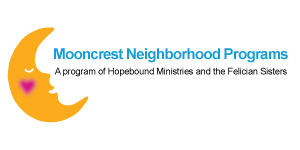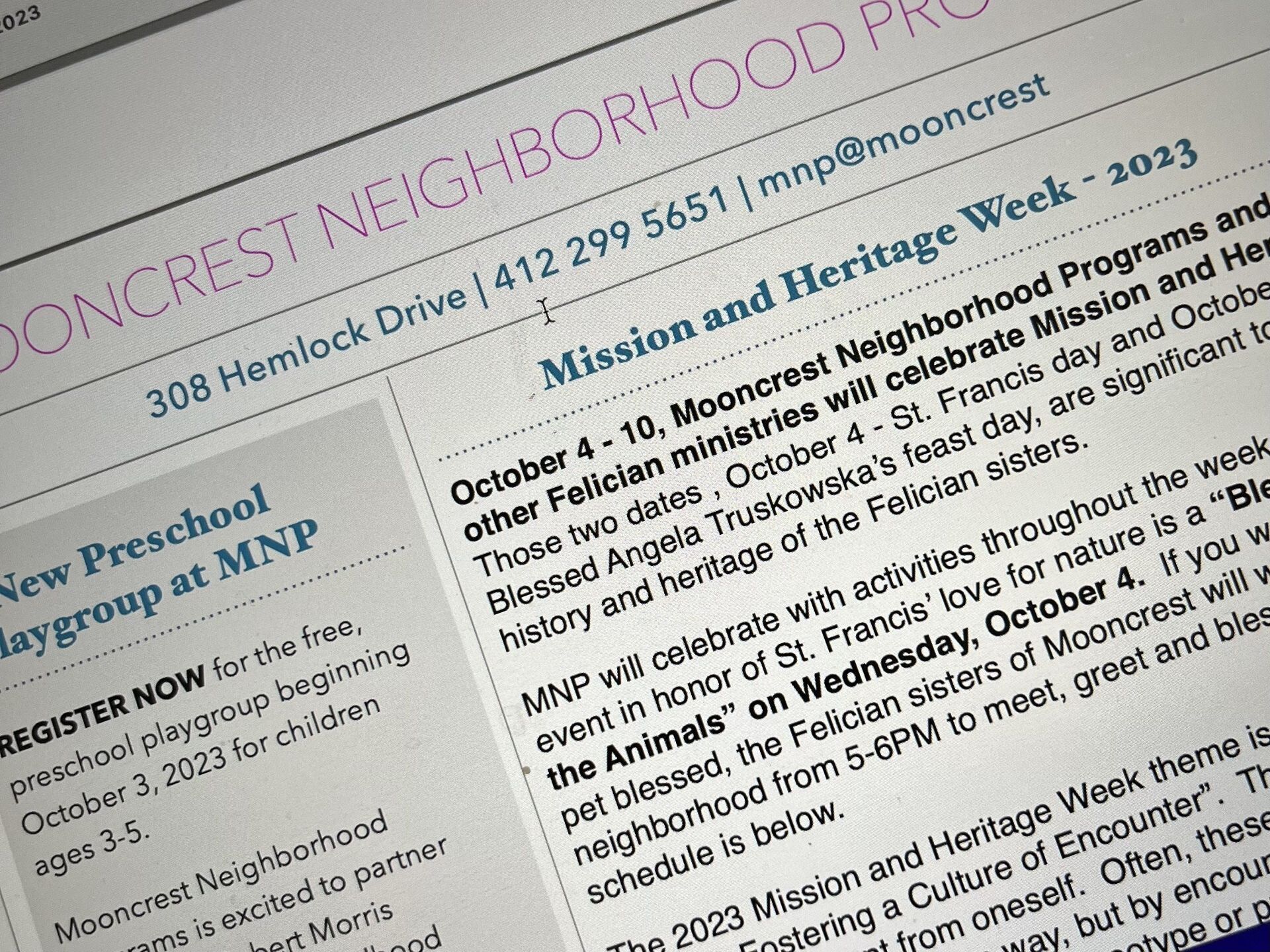Community gardens and food access programs cultivate a bounty of benefits for communities. In 2014, Mooncrest Neighborhood Programs first sought to add community garden space to the Sr. Rene Procopio site. Since then, the growing space has expanded to include 10 raised beds, edible landscaping and fledgling fruit orchard...plus shared space in the beds and greenhouse at sister ministry, Our Lady of the Sacred Heart High School. The many benefits of community gardening can be seen in the Mooncrest community, and we hope to continue growing our garden and enriching lives.
Increased Access to Fresh Produce:
In a small way, the garden helps to combat food insecurity, especially in the somewhat isolated Mooncrest community where residents have limited access to affordable fresh fruits and vegetables. Our little community gardens provide a direct source of nutritious produce for neighborhood children and families, while food access programs connect people with local food pantries, West Hills Food Pantry and Coraopolis Coouminty Development Corp, and resources like 412 Food Rescue.
Improved Health and Nutrition:
Access to fresh produce encourages healthier eating habits. People are more likely to consume fruits and vegetables they grow, including our young participants who learn to be curious and resourceful stewards as they tend the garden.
Community Building:
MNP’s community garden is a vibrant space full of annual artwork produced by children in the after-school and summer camp programs. Many neighbors and guests comment on the bright joy the garden space brings. This fosters engagement and a sense of pride in the beauty of one’s community. The garden has also become a place to share diverse cultural traditions and recipes, promoting understanding and appreciation for different backgrounds.
Education and Environmental Awareness:
MNP’s summer camp curriculum is garden-based and provides hands-on learning experiences about food production, sustainability, and healthy ecosystems. This is valuable for people of all ages, especially children. The garden encourages environmental stewardship by exploring composting, water conservation, native-species gardening and pollinator-friendly practices.
In essence, community gardens and food access programs nourish not just bodies but also communities. They cultivate a connection to the land, enrich our cultures and empower communities to thrive.

